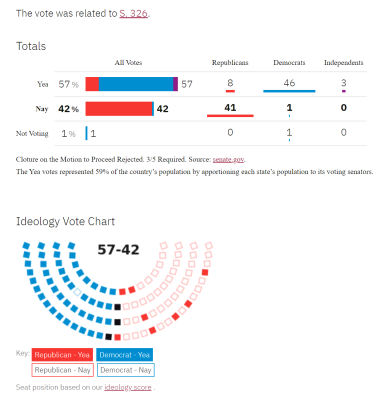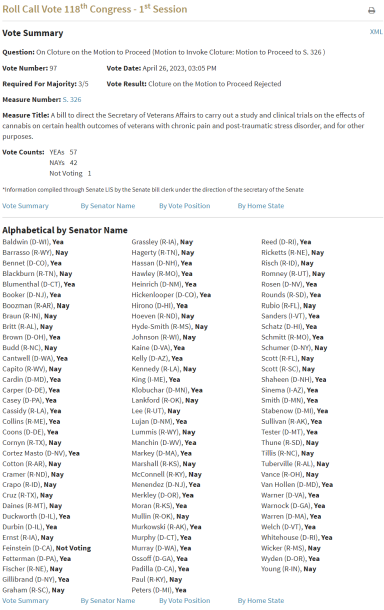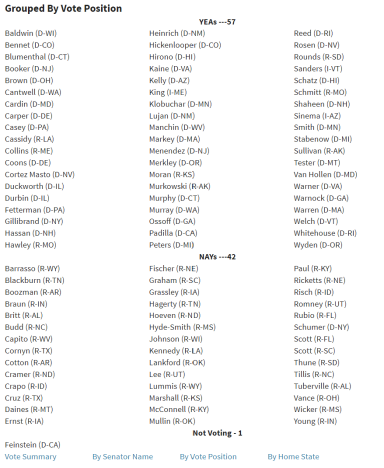Empowering Veterans Through Improved Access to Medical Cannabis
Introduction: Bill S.362 represents a significant opportunity to enhance the lives of veterans by improving their access to medical cannabis. This legislation aims to address the barriers veterans face in obtaining the therapeutic benefits of cannabis as a treatment option for various physical and mental health conditions. We will delve into the details of Bill S.362 and discuss actionable steps that we can take to help get it passed.
Understanding Bill S.362: Bill S.362, also known as the "Veterans Medical Marijuana Safe Harbor Act," seeks to facilitate greater access to medical cannabis for veterans. The proposed legislation would allow Veterans Affairs (VA) healthcare providers to recommend and authorize medical cannabis use in states where it is legal, without fear of repercussions or violating federal laws. This bill recognizes the potential of cannabis as a valuable alternative or complementary treatment option for veterans suffering from conditions such as chronic pain, post-traumatic stress disorder (PTSD), and other service-related ailments.
The Need for Improved Access: Currently, veterans face numerous challenges when it comes to accessing medical cannabis. Federal laws and regulations restrict VA healthcare providers from discussing or recommending cannabis as a treatment option, leaving veterans to navigate the complex landscape of state laws and regulations on their own. This lack of clarity and support often results in limited access and leaves many veterans without safe and legal alternatives for managing their health conditions.
Advocating for Bill S.362: To help get Bill S.362 passed and improve access to medical cannabis for veterans, there are several actionable steps that we can take:
Educate: Spread awareness about the benefits of medical cannabis for veterans and the need for improved access. Share information through social media, online platforms, and community events to educate the public, policymakers, and fellow veterans about the positive impact this legislation can have on veteran healthcare.
Contact Your Representatives: Reach out to your elected officials, including members of Congress and senators, urging them to support and co-sponsor Bill S.362. Explain the importance of this legislation in providing veterans with safe and effective treatment options and emphasize the broad support it has garnered from veterans' advocacy groups and medical professionals.
Conclusion: Bill S.362 holds immense potential in improving the lives of veterans by expanding their access to medical cannabis. By advocating for this legislation and engaging in grassroots efforts, we can help bring about meaningful change and empower veterans to explore cannabis as a safe and effective treatment option. Let us join forces to support Bill S.362 and work towards a future where veterans have the healthcare choices they deserve.
Bill S.326 Results
Needs a vote of 60 to pass
The bill did not pass by 3 votes... but part of our mission is to change that.
Click on each image to see details.
Reported to Senate (03/23/2023)
VA Medicinal Cannabis Research Act of 2023
This bill requires the Department of Veterans Affairs (VA) to study the effects of cannabis on veterans who are enrolled in the VA health care system and have been diagnosed with post-traumatic stress disorder (PTSD) or chronic pain (i.e., eligible veterans).
First, the bill requires the VA to conduct an observational, 18-month study on the effects of cannabis on the health outcomes of eligible veterans. The VA must report on the study and address whether it is able to meet criteria necessary to conduct clinical trials.
Then, if the VA determines that it is able to proceed, it must carry out a series of clinical trials on the effects of cannabis appropriate for investigational use, as determined by the Food and Drug Administration, on the outcomes of eligible veterans. The VA must carry out a long-term observational study of the clinical trial participants.
The VA may terminate the trials if it is unable to meet clinical guideline requirements or the trials would create excessive risk to participants.
The VA must ensure that the study and trials are representative of the demographics of veterans in the United States, as determined by the most recent data from the American Community Survey of the Bureau of the Census.
The study and trials must include mechanisms to ensure data preservation and registration as necessary (in an anonymous form)
Link to BillS.326:
https://www.congress.gov/bill/118th-congress/senate-bill/326
© Copyright. All rights reserved.


